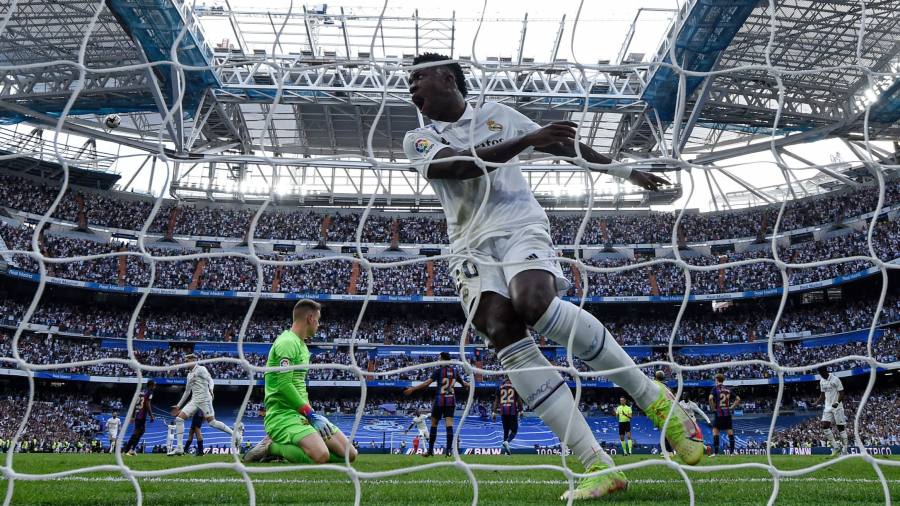
The new boss of the failed European Super League expects it to relaunch within three years and has promised to consider all options for its format after the original project collapsed in the face of widespread anger among fans, clubs and existing leagues.
Despite falling apart within days of launch in April last year, the league has continued to operate as a corporate entity backed by three remaining member clubs: Real Madrid, Barcelona and Juventus.
A22 Sports Management, a company representing the Super League clubs, is planning to revive the competition and has appointed Bernd Reichart, a German media executive, as its new chief executive. His first job will be to open an “active and extended dialogue” across the game, the company said, with the aim of creating a new “sustainable sporting model” for European football.
“We want to reach out to stakeholders in the European football community and broaden this vision. Even fans will have a lot of sympathy for the idea,” Reichart told the FT. “It is a blank slate. Format will never be an obstacle.”
Under the ESL’s original template, 12 elite clubs announced a breakaway competition to rival Uefa’s Champions League. The closed structure — with members guaranteed involvement regardless of their domestic league performance — drew sharp criticism from across football and helped precipitate its rapid unravelling.
The architects of the plan have long complained that European club competitions are badly run, with too many matches that fail to engage audiences. Their original aim was to increase the number of games between top clubs but they now acknowledge that the model must change if the ESL is to succeed.
“There is a reassessment. There is a clearly stated move towards an open format and that permanent membership is off the table”, Reichart told the FT. “We want to see whether or not there is broader consensus about the problems facing European football.”
But resistance to the idea seems as entrenched as ever with Uefa, the domestic leagues and governing bodies, and the European Club Association — a lobby group of elite clubs — all firmly opposed.
Reichart, a former chief executive of RTL Deutschland, said he was optimistic that the barriers to a new contest would be overcome and that a launch in 2024-25 was a “reasonable” expectation.
The three ESL clubs are involved in legal action against Uefa that accuses European football’s governing body of operating a monopoly. The case is currently with the European Court of Justice. An initial recommendation is due in December and a formal ruling expected in the spring.
“If fundamental change is to come, we want to be prepared,” said Reichart.
The presidents of the three ESL clubs have embarked on an outreach campaign, striking a conciliatory tone in a bid to build support for the fight with Uefa. Florentino Perez, president of Real Madrid, said in a recent speech that football was “sick” and “losing its position as the world’s leading global sport”.
Uefa has previously described the ESL project as a “danger to European football”.